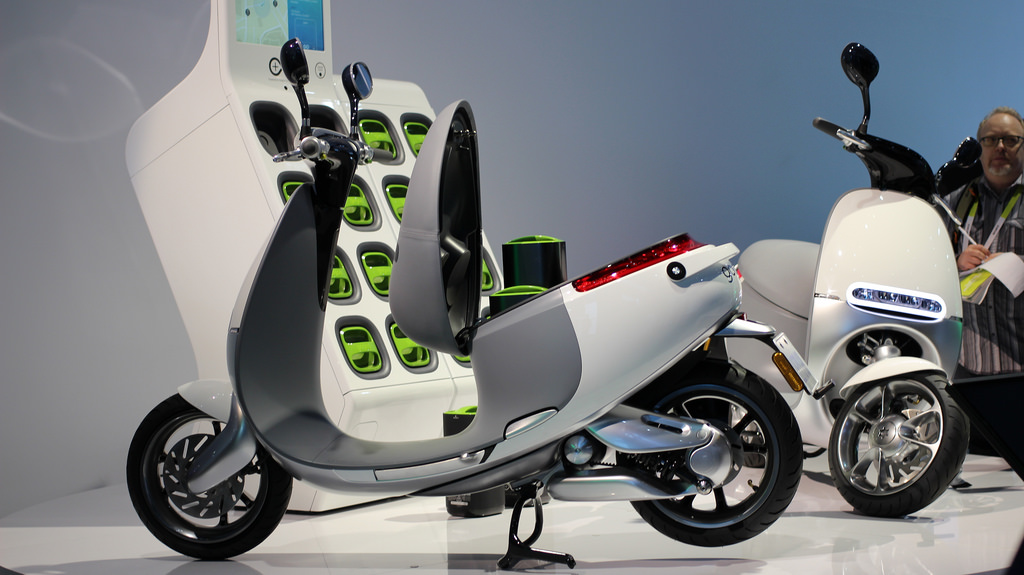Eat your heart out, Elon Musk: A Taiwanese company called Gogoro has developed an electric scooter that, according to The Verge, can get 62 miles on a single charge, while traveling at up to 60 miles per hour. And when that charge runs out, instead of plugging in, drivers will just have to swing by a swapping station for fresh batteries.
Here’s The Verge with more details:
For [$4,140], customers get the scooter itself, one year of theft insurance, and two years of free maintenance and roadside servicing. More importantly, they also get two years’ access to “all-you-can-swap” electric batteries from Gogoro’s charging stations. These batteries are the only way of charging the Superscooter though, and Gogoro is staying quiet about how much they’ll cost after the initial two years are up.
[…]
Horace Luke, Gogoro’s co-founder and a former HTC executive, announced the news in a press conference earlier today, describing the Smartscooter’s reception in Taipei as “beyond our imagination.” The Taiwanese capital is acting as a testing ground for the scooter, with a flagship store — the Gogoro Experience Center — designed to show off the vehicle’s selling points. If this model succeeds in Taipei, then we can expect to see the Gogoro expanding across scooter-loving Asian countries in the coming years.
The scooter comes with all kinds of cool bells and whistles, which you can check out in the video above, but it’s unclear how the price of the Smartscooter (and its batteries) will change after this initial two-year trial period. It’s also unclear where all those batteries will end up when they eventually die. In this (very flattering) review of the scooter, The Verge gets us almost there:
The company rates each battery to last for 2,000 recharge cycles, but expects to lose 20 percent of the original capacity after a quarter of that usage. So, after 500 cycles, Gogoro batteries are taken out of circulation — in order to ensure reliability for users, who are told to expect a 60-mile range from a pair of fully charged batteries. The discarded batteries will then be repurposed to help power data centers, home appliances, and offices. A good example is energy time-shifting: charging up the batteries at night, when the price of electricity is lower, and then using them to power something like a refrigerator during the day. Once that second life is over, Gogoro’s aim will be to give the batteries away to impoverished areas around the world where people have no easy access to electricity.
And when that third life is over? It sounds like those batteries could be destined for the notorious e-waste dumps of the developing world. **Sigh** I guess no battery’s perfect … yet.



